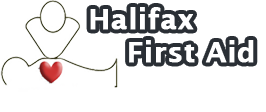Basic Life Support at Halifax First Aid
Basic Life Support training is the most popular program offered at Halifax First Aid. There are two kinds, one for health care providers and one for the general public. CPR Level A is the BLS course for the public and CPR Level C is the one for HCPs, both are pretty popular but we specialize in training programs for HCPs.
Enrolling in our basic and advanced programs is simple. Use the form below to start your application process; we will receive your request as soon as you click submit but we will only be able to process it during business hours for eight in the morning to five in the afternoon.
What exactly is Basic Life Support?
Basic Life Support programs at Halifax First Aid teach students how to manage cardiac emergencies outside of a hospital. That means giving CPR with no medical equipment or medication on hand. As a health care provider, this is a new experience since they are used to complete medical care when managing cardiac arrest and other cardiorespiratory emergencies.
With only your hands and the help of other first aid rescuers, here is a little introduction to out-of-hospital CPR.
- Ascertain the victim is pulseless and isn’t breathing regularly (or not breathing at all).
- Place them on a flat, firm surface, such as the ground.
- Place two hands in the middle of the chest, with fingers interlaced.
- Push hard and fast when giving chest compressions.
- After 30 compressions, give two rescue breaths.
- Tilt the head back (if victim doesn’t have an injury to the neck or back), pinch the nose. Give two full breaths, waiting for the rise and fall of the chest between breaths.
- Continue cycles until medical help arrives.
The Chain of Survival
A health care provider should be aware of the Chain of Survival, or the steps taken when managing cardiac arrest. These steps start from recognizing the emergency to post-cardiac arrest care; each step is vital in ensuring a higher chance of survival of the arrest victim according to numerous studies done all over the world by cardiac health organizations.
- Recognition of SCA – sudden cardiac arrest
- Immediate CPR – chest compressions and ventilation
- Rapid defibrillation
- Advanced cardiac support
- Post-arrest care
Your BLS certificate
To receive the BLS training certificate, a student needs to have complete attendance to all lessons, as well as passing grades on the certification exam. The exam is composed of two parts – a written test and the practical test. A students needs to pass both to receive the training certificate. After passing the exam, we immediately award students with a temporary credential; the permanent one will be mailed to them in a week.
Credentials are only valid for three years; they are renewable by taking a refresher class and another certification exam. The new credential you receive is valid for another three years and is renewable with the same rules. Your credential is valid all over Canada, not just in Halifax.
Enroll today and get started on your BLS training!
